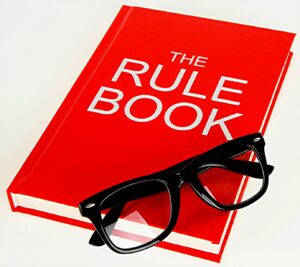Young v Abercrombie 2008 BCSC 389 involved an estate dispute relating to a conflict between the wording of the deceased’s will and the subsequent codicil to the will.
Donald William Abercrombie (“Donald”) died on December 16, 2005, leaving a will executed on November 19, 1981, and a codicil to the will executed on October 28, 2004. He was survived by his two adult children, Kim Amanda Young (“Kim”), the named Executor, and Barry Donald Abercrombie (“Barry”).
[3] Clause 4(d) of Donald’s will directs the Executor to:
… divide the rest and residue of my estate equally between my two children, KIM AMANDA ABERCROMBIE and BARRY DONALD ABERCROMBIE. If either of my said children shall predecease me leaving issue, then such issue shall take in equal shares per stirpes the share such child would have taken if living. If any of my said children shall predecease me leaving no issue, then the share to which such deceased child would have been entitled shall be transferred to my surviving child for his or her own use absolutely.
[4] The codicil sets out the following:
Should either of my children become incapacitated due to illness or accident it is my instruction that my Trustee invest my incapacitated child’s share of my estate into investments or a form of annuity. My Trustee shall have the sole discretion to invest monies and advance monies as she or he she sees fit.
In all other respects I confirm this will.
The court reviewed various rules of construction of wills and turned to the issue of the strong presumption that the probate courts have against finding an intestacy. The courts will where possible, construe a will so as not to lead to an intestacy.
“Further, in the construction of wills, there is a strong presumption against intestacy. This often-cited principle was articulated by Lord Esher, M.R. in Re Harrison Estate (1885), 30 Ch.D. 290 at 393-4, as follows:
There is one rule of construction, which to my mind is a golden rule, viz., that when a testator has executed a will in solemn form you must assume that he did not intend to make it a solemn farce – that he did not intend to die intestate when he has gone through the form of making a will. You ought, if possible, to read the will so as to lead to a testacy, not an intestacy. This is a golden rule.
In Baldissera v. Baldassi (1997), 18 E.T.R. (2d) 128 (B.C.S.C.) at para. 10, Edwards J., citing The Canadian Law of Wills, vol. 2, confirmed that:
There is a presumption against intestacy and the court will prefer an interpretation of the will which avoids an intestacy.
And further, at para. 11, Edwards J. held:
The court on reading the will as a whole may conclude that the testator clearly intended to dispose of his entire estate. Once such an intention is clear the court will construe the will so as to give effect to the will in preference to a construction which will result in a partial or total intestacy.
A similar conclusion is found in Jankowski v. Pelek Estate, [1996] 2 W.W.R. 457, 131 D.L.R. (4th) 717 (Man. C.A.), where Helper J.A. at para. 76 stated, “[i]f the will is capable of two constructions, one which disposes of the whole estate and the other which leaves part of the estate undisposed of, the court will prefer the former.”
And finally, if it is reasonable to do so, the will and codicil should be read in harmony so as to avoid an intestacy. Donald clearly intended to dispose of his entire estate, and it is therefore the role of the court to construe his will and codicil in a manner that does so.
[36] Here, if an intestacy is the result, one of Donald’s children, Kim, will receive 75% of his estate, while the heirs of the other, Barry, will receive 25%. That result does not confirm Donald’s will; it re-writes it, both in respect of the bequest to Barry, and also to Kim. The intended equal sharing between Donald’s children would not be the result.
[37] In all of the circumstances, I have concluded that Donald’s will and codicil, when read together, provide for the vesting of one-half of the residue of Donald’s estate in Barry when Donald died.




